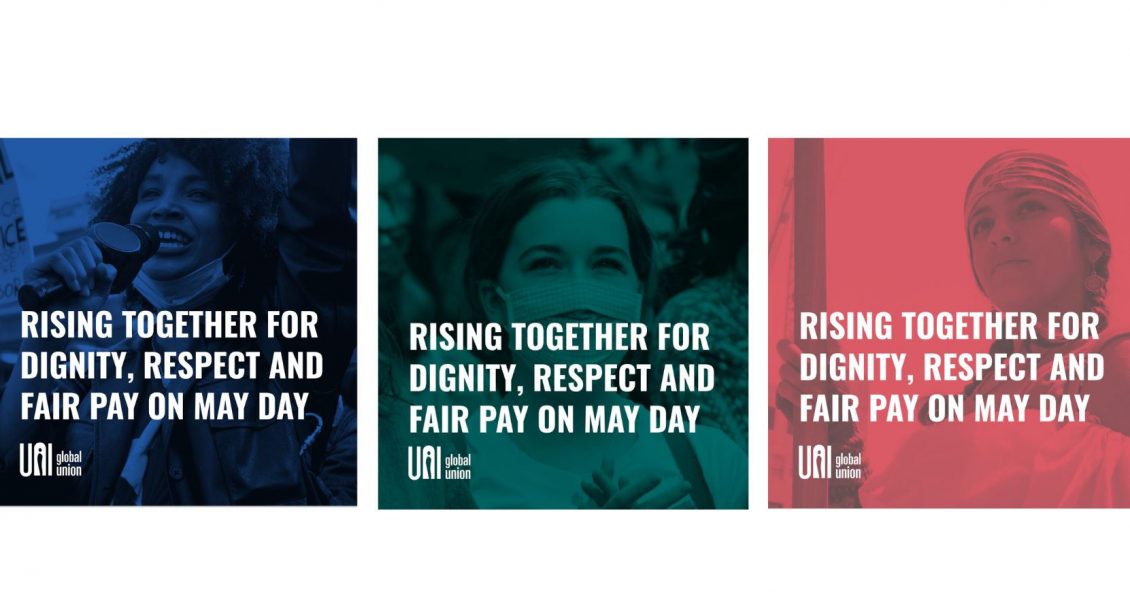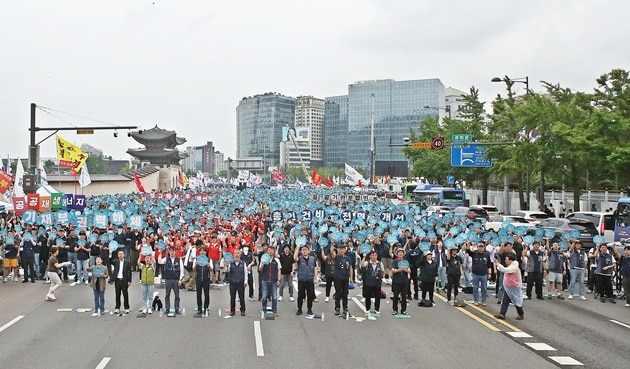On May Day, we are rising together
01.05.23
International Workers’ Day, 1 May, UNI Global Union is in solidarity with all workers all over the world who are fighting – and winning.
The pandemic showed that our work is essential. Three years on, workers are not content to wait for our fair share, whether we are striking journalists in Türkiye or cleaners in New Zealand or the many strikers across the UK and Germany who are using our collective power to win.
Nor will we sit back in the face of takeaways or attacks on our conditions, as French unionists have demonstrated through their protests over new retirement rules.
UNI General Secretary Christy Hoffman said:
We come together on 1 May to celebrate our victories and to support those in struggle. The past year has shown that when we fight, we win. As we have emerged from the pandemic, workers have organized, gone on strike and fought for progress in collective bargaining with new energy and determination. They have shown there is power in our anger, and there is strength in our hope, but most of all there is the ability to change the world in our solidarity.
As a global labour movement, our goal is to shift the balance of power from the few to the many. To do this, we must organize and to expand collective bargaining to all workers.
We fight for respect and for family supporting wages which reward our productivity and enable us to live and work with dignity. We demand safer jobs and a decent retirement.
We unite for a world of racial justice, gender justice climate justice and respect for human rights.
And we are rising together.
Below are a few highlights of the the ways in which workers are rising together to build a better future for all.
Taking on the cost-of-living crisis
The cost-of-living crisis has afflicted every corner of the globe, and unions around the world offer an answer: bargaining for higher wages. With their unions, millions of workers have been able to maintain – or improve – their standards of living in the face of skyrocketing inflation. And many others are still fighting to bring employers to the negotiation table.
More than 200,000 commerce workers gained a well-deserved pay increase in Finland through a new sectoral agreement that took inspiration from a similar sectoral win in Germany. Montenegro Telekom workers won a 136-day strike that resulted in higher salary and a stronger recognition of their rights.
In Japan, unions pushed for higher-than predicted pay rises during their annual wage negotiations known as the “Shunto” or spring offensive. Workers in South Africa are calling on Massmart to stop union busting at its Makro stores, after workers there stood for better pay among other improvements.
Today, 1 May, the contract for some 9,000 TV and movie writers in the United States expires. They took a strike vote last week to authorize a strike that could shut down that country’s entertainment industry if a contract without fair pay isn’t negotiated.
Organizing for worker power
The global swell of worker organizing that began last year continues to rise in 2023. For example, tech workers are responding to widespread layoffs and inadequate working conditions with strikes, protests, and unionizing efforts across the globe.
Google’s European workforce – including workers in Switzerland and the UK where there have been recent walkouts – will soon be covered by the first-ever European Works Council (EWC), and workers at Google Korea formed their union. At Spotify, TikTok, Twitter and beyond there has also been a surge of cross-border activity.
Amazon workers continue their years-long struggle for justice on the job. Most recently, fed up with unsafe work for too-low wages, warehouse employees in the United Kingdom and Spain went on strike last month. In one UK fulfilment centre, GMB union members have met the threshold for mandatory union recognition.
At Teleperformance in Colombia, UNI, our affiliate Utraclaro and the company are ready to implement our breakthrough global agreement, signed in December last year. The agreement in Colombia, reached in April, “facilitates the exercise of the freedom to unionize” and allows for the union to contact workers employed in call centres and remotely.
That vision is why unions around the world take to the streets today and organize year-round. Because we know that when we fight, we win.
News
UNI Africa
UNI Americas
UNI Asia & Pacific
UNI Europa


